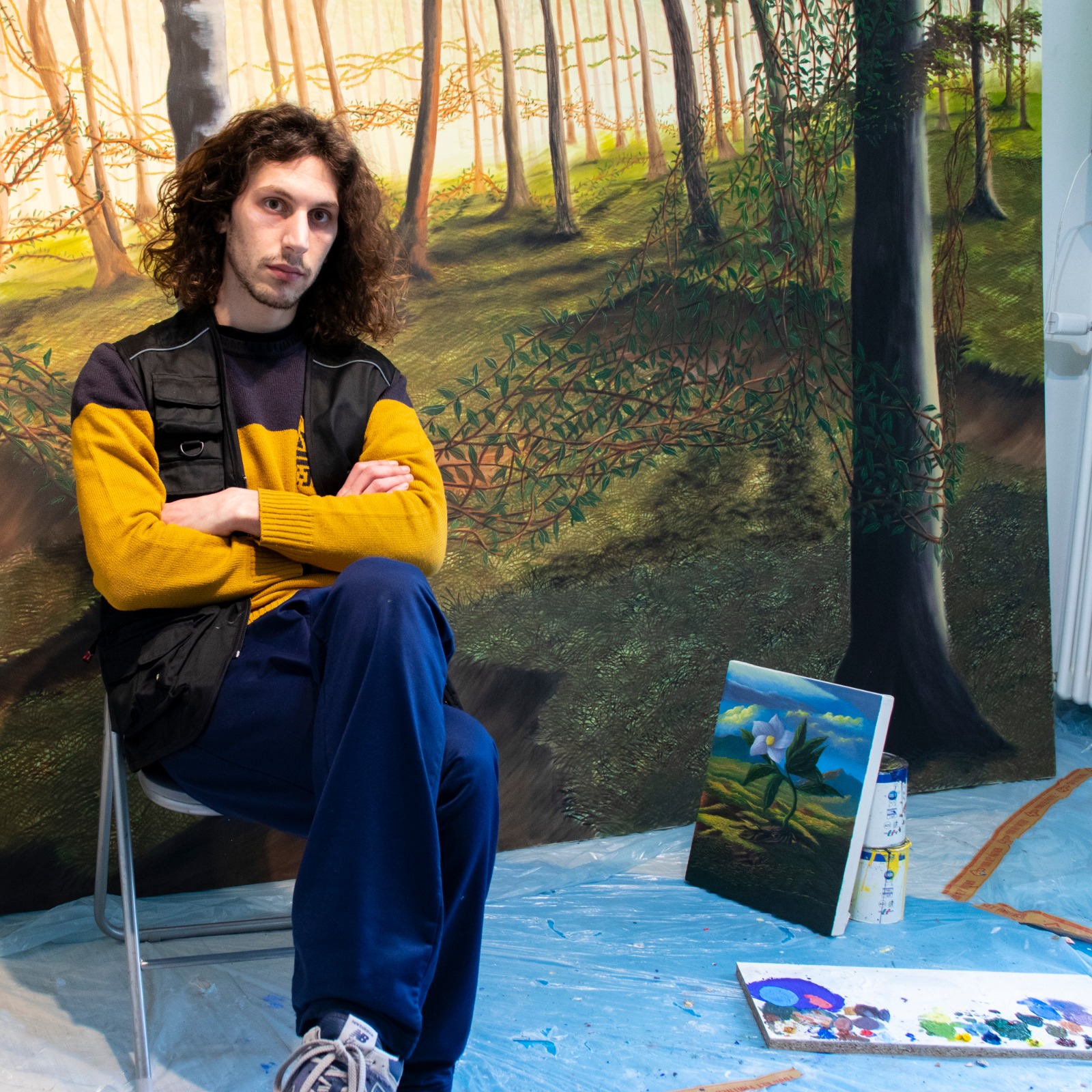Marco Mastropieri
At the basis of the pictorial research of Marco Mastropieri (born in 1995 in Foggia, he lives and works between Venice and Conegliano) is the study of the landscape and the construction of new and unexplored worlds elaborated from the visual and sensory stimuli of reality. Through an analytical and methodological method of representation along the lines of the Flemish and some 16th-century botanists, each plant and leaf is carefully analysed down to the smallest detail, becoming the protagonist of a space without human presence in which the foreground presents more detailed and visible elements while the background fades as if to conceal a storm ready to brew.
The behaviors and movements of plants, taken from scientific studies on plant neurobiology, are the protagonists of the narrative structure of the image. By accentuating everything through deformations and disproportions, the artist gives life to places with a surreal atmosphere.
Among the sources of inspiration, the 1976 book "La botany parallela" by Leo Lionni, a curious text in which a series of imaginary plant species is described with scientific meticulousness, and the works of Gherardo Cibo, a botanical artist who lived in the 16th century, author of one of the oldest herbaria, characterized by an evident alteration of the proportions between the plant in the foreground and the landscape in the background. Other important sources of inspiration from the literary world are the “Dune” saga of science fiction novels, especially the way in which the author, Frank P. Herbert, developed the planet on which the events take place, and the French novel “ The Adventures of Gargantua and Pantagruel”, whose atmospheres are reproduced within the paintings.
The concept of ecosystem is another foundation of Marco Mastropieri's research, which is developed by considering the connection of the different forms of life and the correspondences between macrocosm and microcosm.
Sometimes gloomy, other times adventurous, Marco Mastropieri's paintings present landscapes in which every possible human trace is absent, overturning the anthropocentric conception of nature.


























